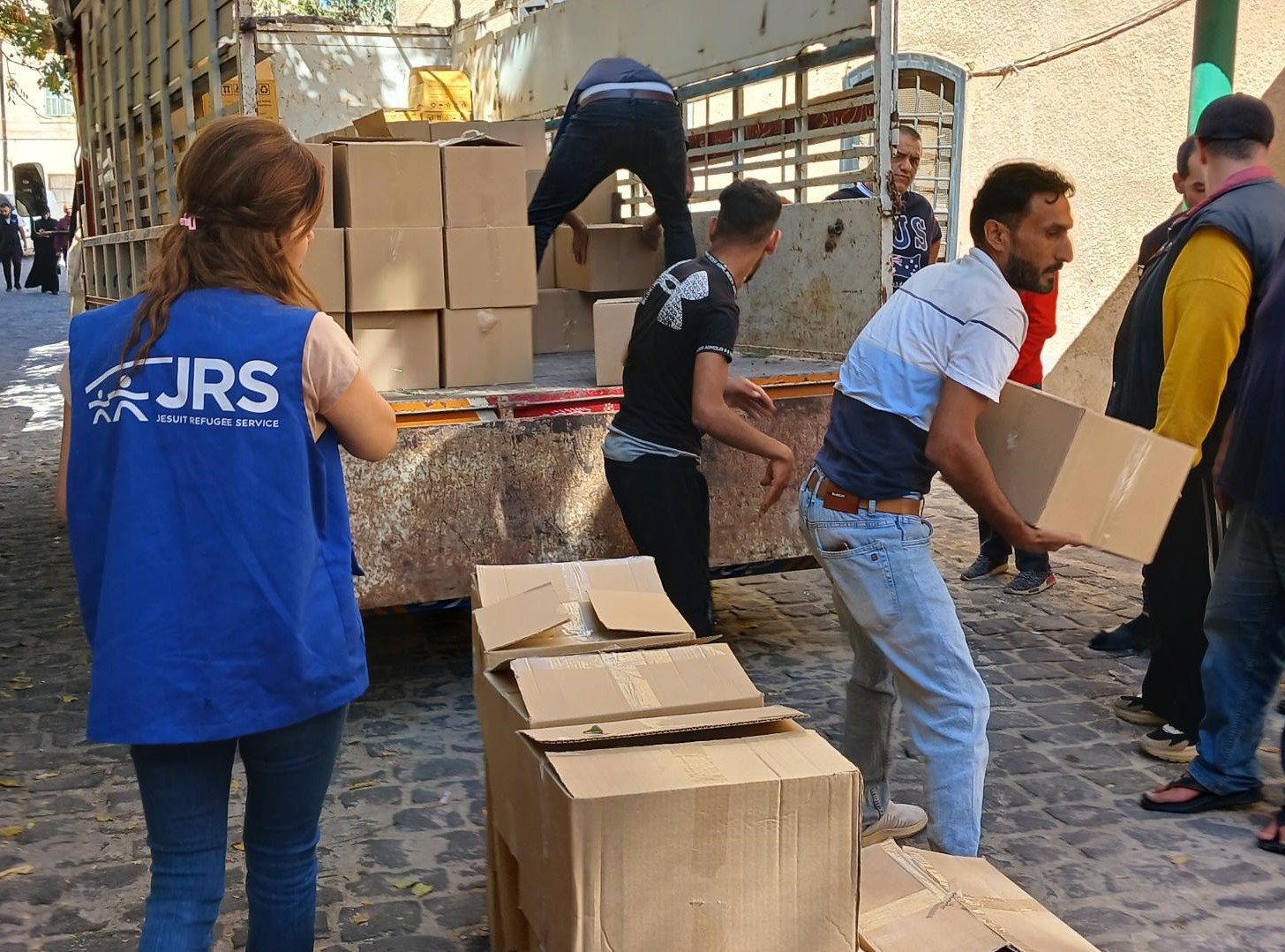Supporting Refugees: Dispelling Misconceptions and Fulfilling Our Duty
07 January 2025|JRS/USA - Brooke Wood

For JRS/USA, our commitment to standing with forcibly displaced people is not only a reflection of our organization’s Catholic values, but also a legal obligation. US laws, grounded in international treaties like the 1951 Refugee Convention and the Refugee Act of 1980, mandate the protection of refugees, access to asylum, and the overall right to migrate when one’s home becomes untenable. While navigating the intentionally complex legal framework can be challenging, we can take the time to understand the truth about refugees, asylum seekers, migrants, and other forcibly displaced people to foster compassion and action. As rhetoric in the US grows more divisive and hostile towards those forced to flee homes, we offer a series of truths about these individuals that we hope shed light on the humanity behind this situation.
Common Myths Debunked
Myth: Refugee, Asylum Seeker, Internally Displaced Person, and Migrant can be used interchangeably.
FALSE: Each term represents a unique experience and distinct legal status
- Refugee: Forced to flee their country due to persecution, conflict, or violence and protected under international law.
- Asylum Seeker: Someone who has left their country and is seeking protection from persecution and serious human violations in their home country but who has not been legally recognized as a refugee and is waiting to receive a decision on their asylum claim.
- Internally Displaced Person (IDP): Displaced within their own country due to conflict, violence, or disasters.
- Migrant: Moves primarily for reasons such as economic opportunities or education, often voluntarily.
Myth: Refugees and asylum seekers are a security threat and more likely to commit crimes.
FALSE: Refugees and asylum-seekers are no more likely to commit crime than citizens of their host country. In fact, in the US, research from the National Institute of Justice shows that undocumented immigrants, including asylum seekers, have significantly lower crime rates than native-born citizens. For example, US-born citizens are over twice as likely to be arrested for violent crimes.
Sources: Reuters
Myth: Asylum seekers can freely work and live in the US upon arrival.
FALSE: Asylum seekers must wait 150 days after filing their application before applying for a work permit. Many rely on personal savings, community networks, and charitable organizations like JRS/USA for support as they await approval and integration. In fact, JRS/USA’s Migrant Accompaniment Network is a community of volunteers across the country who support incoming asylum-seekers, migrants, and others with essentials, including emotional support as they go through this process.
Sources: U.S. Citizenship and Immigration Services (USCIS)
Myth: Refugees receive more government assistance than native citizens.
FALSE: Refugees in the US receive limited, short-term assistance through programs like the Refugee Cash Assistance (RCA) and Refugee Medical Assistance (RMA) programs, typically for the first 8 months after arrival. This assistance is minimal compared to programs available to native citizens such as Medicaid or SNAP.
Sources: Office of Refugee Resettlement
Myth: Refugees and asylum seekers overburden host countries’ economies and welfare systems.
FALSE: Refugees are most often economic contributors, filling critical labor shortages, starting businesses, and stimulating economic growth in host countries.
Sources: IMF – Partnerships for Refugees
Myth: There’s nothing individuals can do to support refugees, asylum seekers, and other forcibly displaced people.
FALSE: Individuals can advocate, volunteer, engage with, or donate to organizations such as JRS/USA to make difference. You can subscribe to our monthly newsletter or INSIDER to stay up to date on issues impacting refugees and personal testimonies from the people we serve and the people we work with. You can also reach out to JRS/USA Outreach Officer, Clara Sayans for potential opportunities within your school, university, or parish communities as well.
A Call to Action
The challenges faced by refugees and asylum seekers are immense, but so are the opportunities to make a difference. Dispelling myths and understanding realities amidst an influx of confusing information is just the beginning. As people of faith and global citizens, we are called to accompany, serve, and advocate for our displaced brothers and sisters and we encourage you to join us.


